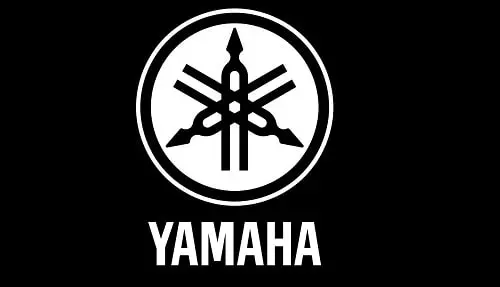Yamaha, a globally renowned brand in the two-wheeler and power sports industry, has established itself as a trusted name in India. Known for its innovative designs, high-performance motorcycles, and scooters, Yamaha has a loyal customer base that spans across urban and rural areas. With the growing demand for two-wheelers in India, owning a Yamaha dealership presents an excellent business opportunity for entrepreneurs looking to enter the thriving automobile market.
This article provides a detailed overview of the Yamaha franchise cost, requirements, and profitability in India.
Why Invest in a Yamaha Franchise?

India’s two-wheeler market is one of the largest in the world, driven by increasing urbanization, rising disposable incomes, and the need for affordable and fuel-efficient personal transportation. Yamaha is well-positioned to capitalize on this demand. Here’s why investing in a Yamaha dealership is a smart choice:
- Global Brand Recognition: Yamaha is a globally trusted brand with a strong reputation for quality, reliability, and performance.
- Diverse Product Portfolio: Yamaha offers a range of motorcycles, scooters, and performance bikes, catering to different customer segments.
- Growing Market Demand: With an increasing preference for two-wheelers in India, Yamaha dealerships enjoy steady demand from diverse customer bases.
- Comprehensive Support: Yamaha provides franchisees with extensive training, marketing support, and operational guidance, ensuring a seamless business setup and management.
- Focus on Innovation: Yamaha’s emphasis on technology and innovation keeps its products competitive in the market.
Yamaha Franchise Cost in India
Setting up a Yamaha dealership in India requires a substantial investment, as it involves creating a premium showroom and service center to meet the brand’s global standards. Below is a detailed breakdown of the costs involved:
1. Initial Franchise Fee
The initial franchise fee for a Yamaha dealership typically ranges between ₹5 lakh and ₹15 lakh, depending on the dealership’s location and size. This fee includes the right to operate under the Yamaha brand and access to its product portfolio, marketing materials, and operational systems.
2. Land and Infrastructure
Yamaha dealerships require a significant area to accommodate the showroom, service center, and inventory. The costs vary based on the type of dealership:
- Land Requirements:
- Tier 1 Cities: A minimum area of 6,000 to 10,000 square feet is required.
- Tier 2 and Tier 3 Cities: A minimum area of 4,000 to 8,000 square feet is required.
- Setup Costs:
- Showroom Construction and Interiors: ₹50 lakh to ₹1 crore for designing and furnishing the showroom, customer lounge, and office spaces.
- Service Center Setup: ₹25 lakh to ₹50 lakh for service bays, tools, and diagnostic equipment.
3. Inventory and Stock
An initial investment in vehicle inventory is required to display and sell Yamaha’s motorcycles and scooters. The cost of inventory typically ranges between ₹1 crore and ₹3 crore, depending on the dealership’s scale and market demand.
4. Licensing and Permits
Franchisees must obtain various licenses and permits to operate a Yamaha dealership, including:
- Trade License: ₹50,000 to ₹1 lakh
- GST Registration: ₹20,000 to ₹50,000
- Pollution Control Clearance (for the service center): ₹50,000 to ₹1 lakh
5. Marketing and Advertising Contribution
Franchisees are required to contribute a percentage of their revenue (usually 2% to 4%) toward Yamaha’s national and local marketing campaigns.
6. Working Capital
A reserve of ₹20 lakh to ₹50 lakh is recommended to cover operational expenses, including staff salaries, utilities, and other overheads during the initial months.
Total Investment
Considering all the components, the total investment required to establish a Yamaha dealership in India typically ranges between ₹1.5 crore and ₹4 crore, depending on the location and scale of operations.
Requirements for Opening a Yamaha Franchise
To qualify as a Yamaha franchisee, prospective investors must meet specific eligibility criteria:
- Financial Stability:
- Franchisees must demonstrate the ability to invest the required capital and sustain operations during the initial phase.
- Prime Location:
- The dealership must be located in a high-traffic area, such as a commercial hub, near residential areas, or along highways, ensuring maximum visibility and accessibility.
- Retail Space:
- A minimum area of 4,000 to 10,000 square feet is required for the showroom and service center.
- Business Experience:
- While prior experience in the automobile industry is not mandatory, it is an advantage.
- Commitment to Brand Standards:
- Franchisees must adhere to Yamaha’s operational guidelines, including showroom design, customer service protocols, and inventory management.
Profitability and Return on Investment (ROI)
The profitability of a Yamaha dealership depends on factors such as location, customer footfall, and operational efficiency. Here’s an overview:
- Revenue Potential:
- A well-located Yamaha dealership can generate annual revenue ranging from ₹5 crore to ₹15 crore, depending on market demand and product sales.
- Profit Margins:
- The average profit margin for vehicle sales ranges between 5% and 10%, while servicing and spare parts contribute higher margins of 15% to 25%.
- Break-Even Period:
- Most Yamaha dealerships achieve break-even within 2 to 4 years, provided they are efficiently managed and located in high-demand areas.
- Recurring Revenue:
- Service centers and spare parts sales provide a steady source of recurring income, ensuring long-term profitability.
Advantages of Owning a Yamaha Franchise
- Trusted Brand: Leverage Yamaha’s strong reputation and loyal customer base to drive sales.
- Diverse Revenue Streams: Earn from vehicle sales, servicing, spare parts, and accessories.
- Comprehensive Support: Benefit from Yamaha’s training programs, marketing assistance, and operational guidance.
- Growing Market Opportunity: Tap into India’s booming two-wheeler market and increasing demand for premium motorcycles and scooters.
- Future-Ready Products: Yamaha’s focus on electric vehicles ensures franchisees are prepared for evolving market trends.
Challenges to Consider
- High Initial Investment: The substantial upfront cost may be a barrier for small-scale investors.
- Location Dependency: The dealership’s success heavily relies on its location and accessibility.
- Market Competition: Yamaha dealerships face competition from other leading brands like Honda, Hero, and TVS.
Conclusion
Investing in a Yamaha franchise in India is a rewarding opportunity for entrepreneurs looking to enter the automobile industry. With its strong brand reputation, diverse product portfolio, and robust support system, Yamaha offers a reliable and scalable business model. However, prospective franchisees should carefully evaluate the costs, location, and market dynamics before committing to the investment. By adhering to Yamaha’s operational standards and focusing on customer satisfaction, franchisees can build a successful and profitable business in India’s thriving two-wheeler market.
Anantha Nageswaran is the chief editor and writer at TheBusinessBlaze.com. He specialises in business, finance, insurance, loan investment topics. With a strong background in business-finance and a passion for demystifying complex concepts, Anantha brings a unique perspective to his writing.


